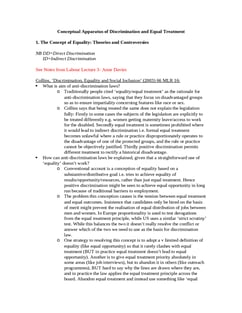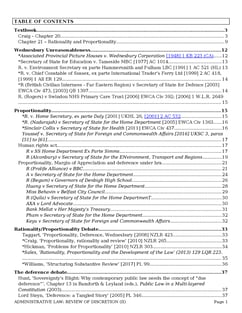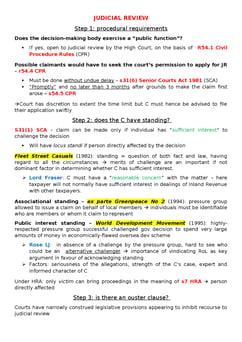R (Jackson) v Attorney General [2005] UKHL 56
Judgement for the case R (Jackson) v Attorney General
Table Of Contents
KEY POINTS
Since Parliament Acts are considered enacted law, Parliament Act 1949 was indeed valid and it could amend the procedures of the Parliament Act 1911.
As to the jurisdiction of the court, Lord Carswell stated: It is correctly a question of statutory interpretation, determining the ambit of section 2(1) of the Parliament Act 1911, a question of law which falls within the scope of courts of law carrying out their regular function. [169]
FACTS
The appellants have an interest in fox-hunting who are challenging the legality of the Hunting Act 2004, which prohibits hunting foxes with dogs in most cases.
They argue that the Parliament Act 1949, which was used to pass the Hunting Act, is itself invalid because it did not receive the consent of the House of Lords. They claim that the Parliament Act 1911, which the 1949 Act sought to amend, did not permit such an amendment without the House of Lords' consent.
The central issue in this case revolves around the validity of the 1949 Act and its relationship with the 1911 Act, rather than the merits or drawbacks of the Hunting Act itself.
JUDGEMENT
Appeal dismissed.
COMMENTARY
This decision established a significant precedent for such circumstances by clarifying the constitutional framework guiding the legislative process, particularly with regard to the official capacity of the courts to declare legislative acts invalid in the event that they violate constitutional principles.
ORIGINAL ANALYSIS
Challenge to the validity of the Hunting Act 2004 (ban on fox hunting): The attorney general did not block an attempt by the appellants to show the parliament acts and the hunting act were invalid (this was probably for political reasons so as to get a legal mandate for the act)
HL said that clearly, following Pickin v British Railways Board an act couldn’t be invalidated, though HL was prepared to treat the proceedings as justiciable because, unlike the previous case, this was about whether a law had really been enacted, and not questioning parliamentary procedure (per Lord Bingham).
Similarly the appellants were questioning the interpretation of a provision of the Parliament Act 1911, which was a proper area for the courts.
-
The argument ran that the 1911 act delegated legislation to HC + gov:
That delegated legislation could not be used to increase the scope of the delegatee’s authority (true- established by convention);
That bills passed by only gov + HC was delegated legislation (not proven);
And that the 1949 act was broadening the authority of the delegate by further removing the power of the HL to limit them.
HL rejected this, partly on the grounds of the long acceptance of the 1949 act.
RELATED CASES
For Further Study on R (Jackson) v Attorney General

Labour Law notes fully updated for recent exams at Oxford and Cambridge...

Administrative Law notes fully updated for recent exams at Oxford and C...
Need instant answers? Our AI exam tutor is here to help.
Ask questions 🙋 Get answers 📔 It's simple 👁️👄👁️
Our AI is educated by the highest scoring students across all subjects and schools. Join hundreds of your peers today.
Get StartedSimilar Cases
Related Product Samples
These product samples contain the same concepts we cover in this case.
| Administrative Law | Jurisdiction Notes (26 pages) |
| Constitutional Law | Parliamentary Sovereignty Notes (8 pages) |
| Labour Law | Sources And Scope Of Labour Law Notes (17 pages) |

 Since 2010, Oxbridge Notes has been a trusted education marketplace, supplying high-quality materials from top achievers at universities like Oxford, Cambridge, LSE, Harvard, and Yale.
Since 2010, Oxbridge Notes has been a trusted education marketplace, supplying high-quality materials from top achievers at universities like Oxford, Cambridge, LSE, Harvard, and Yale.